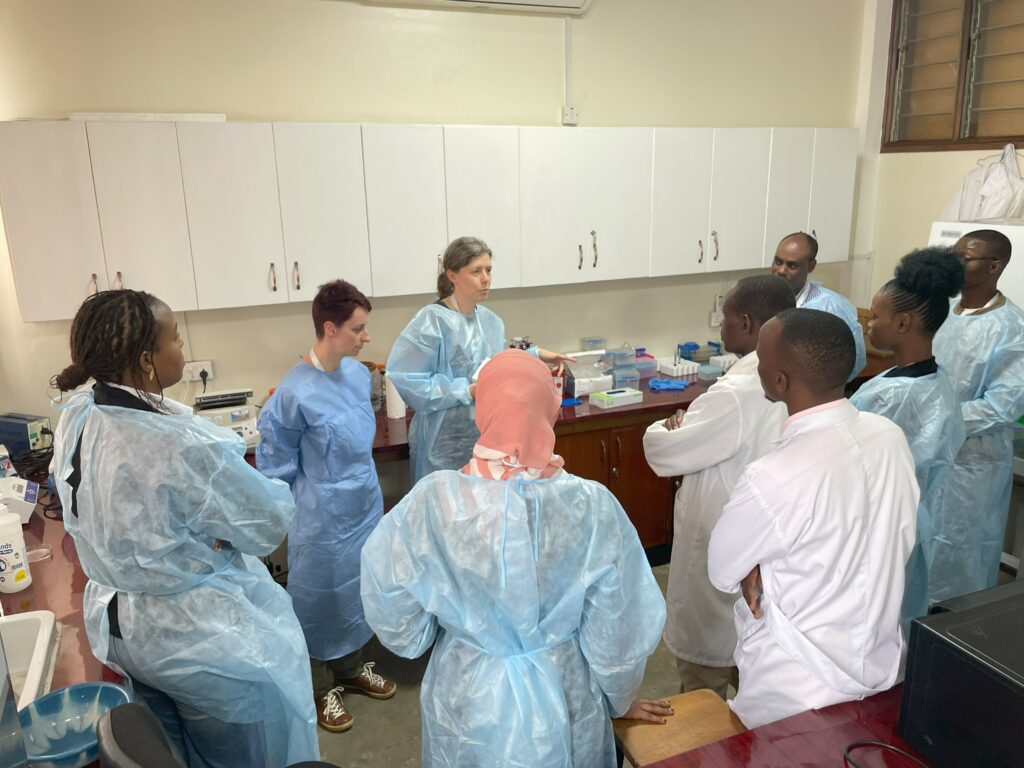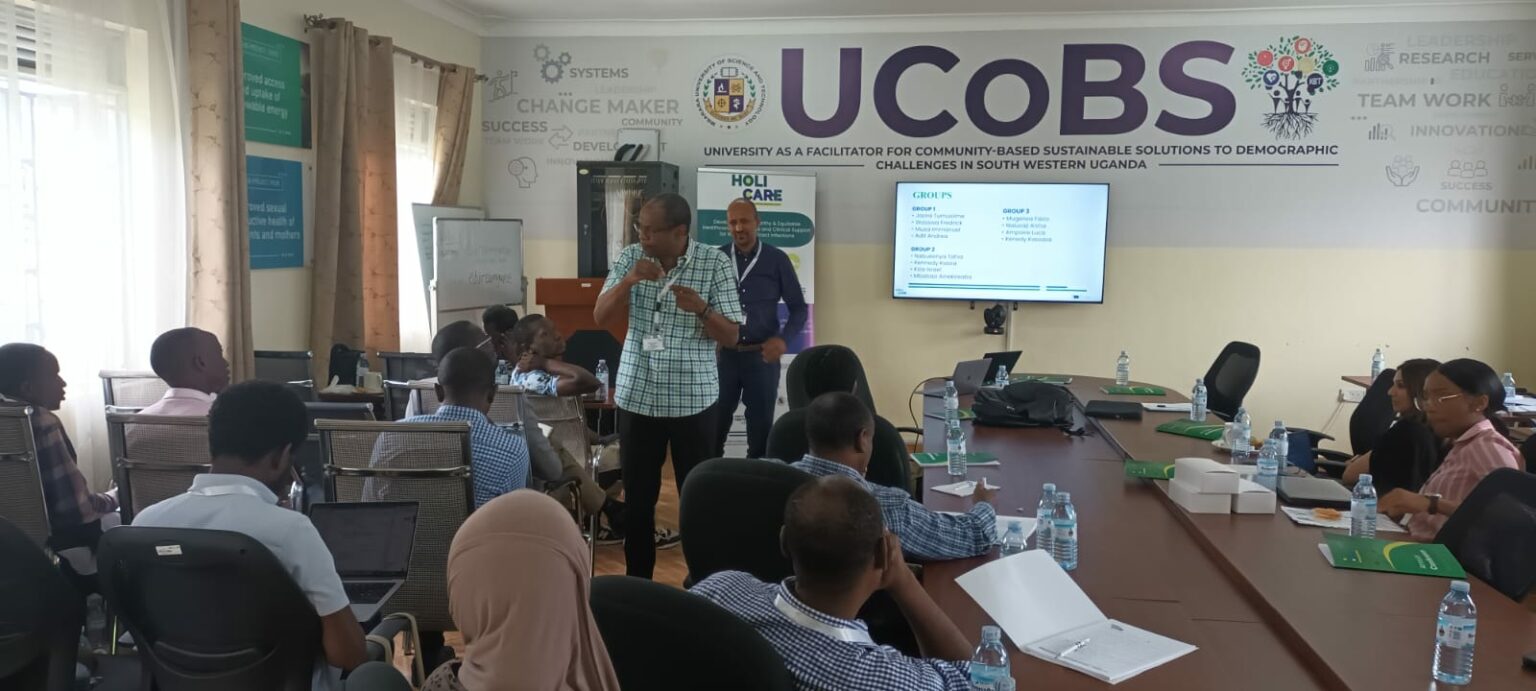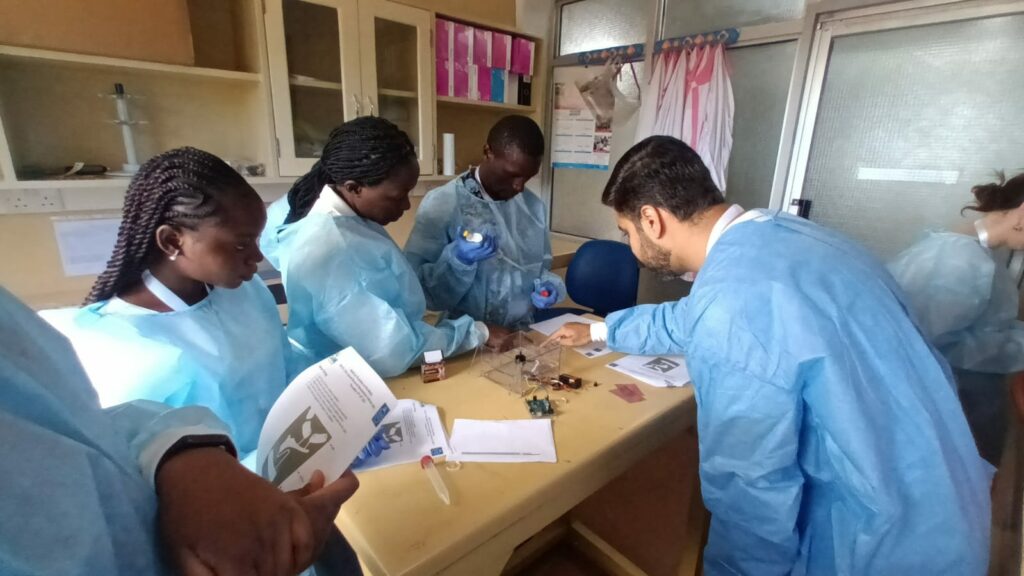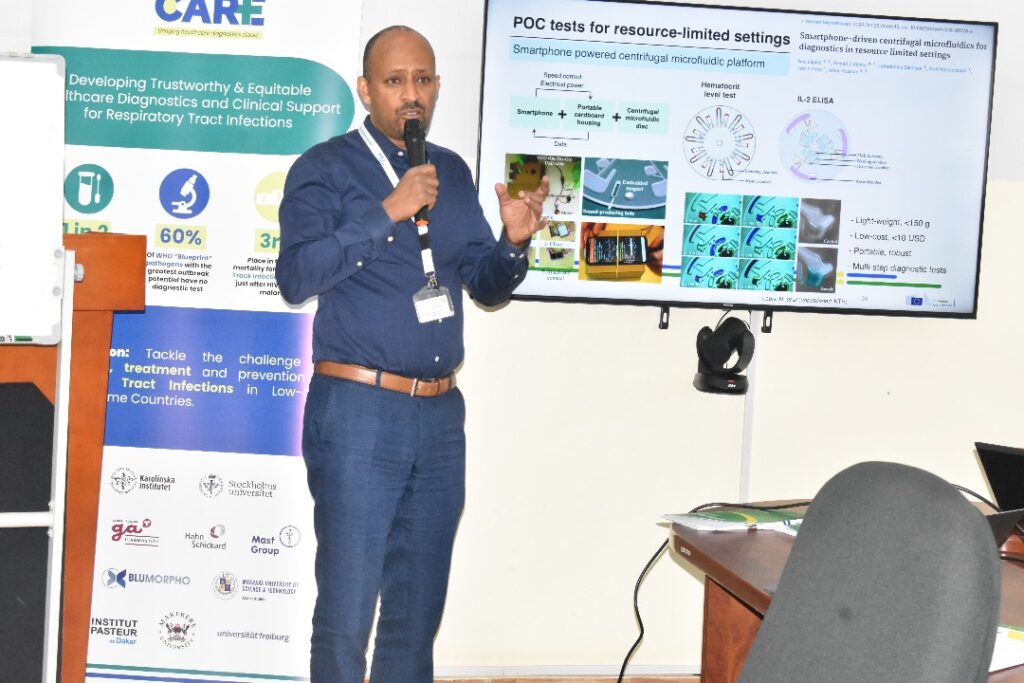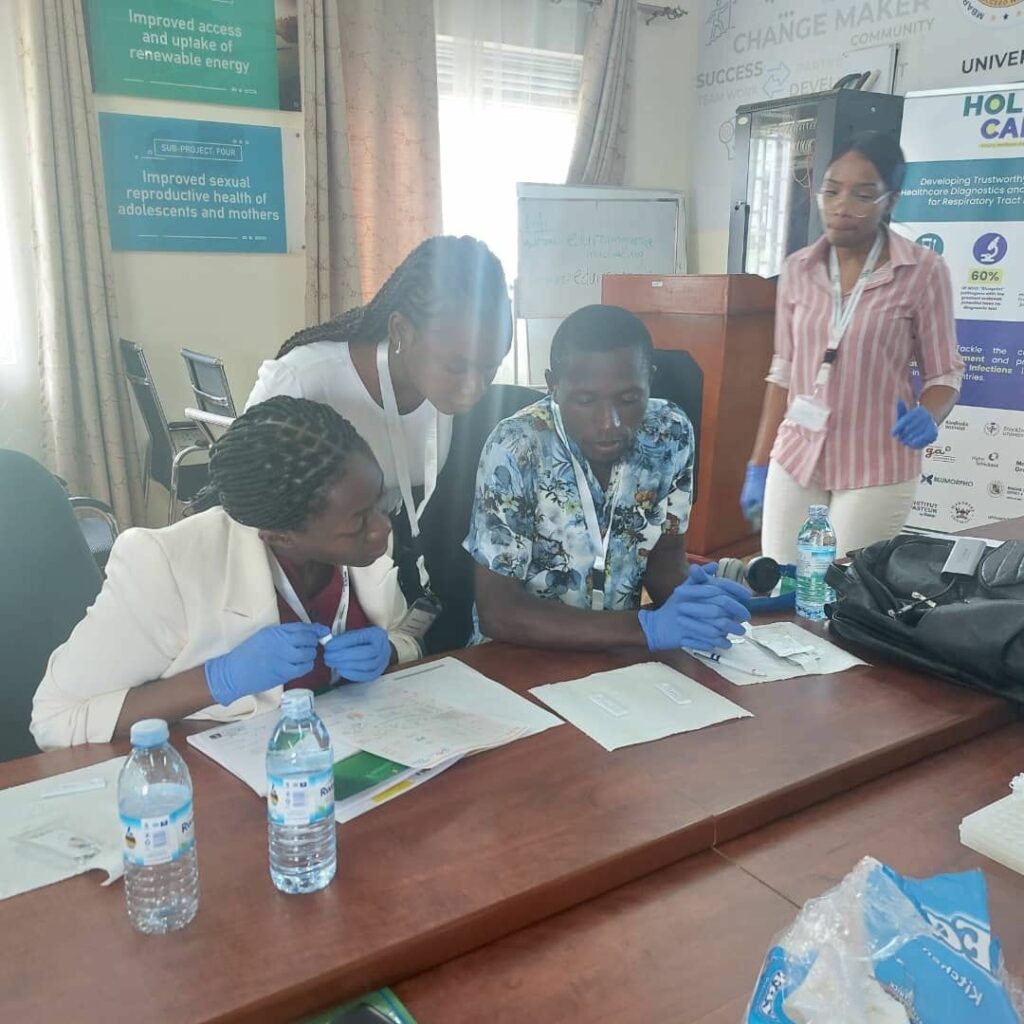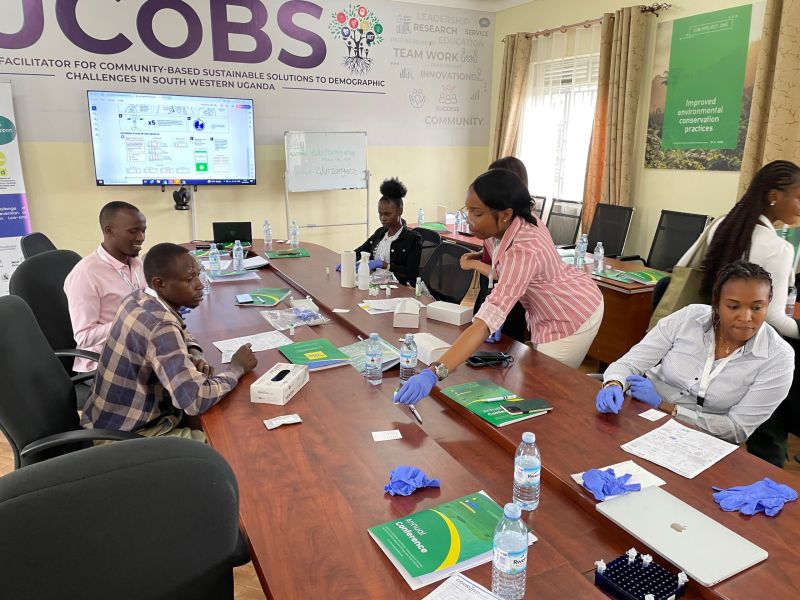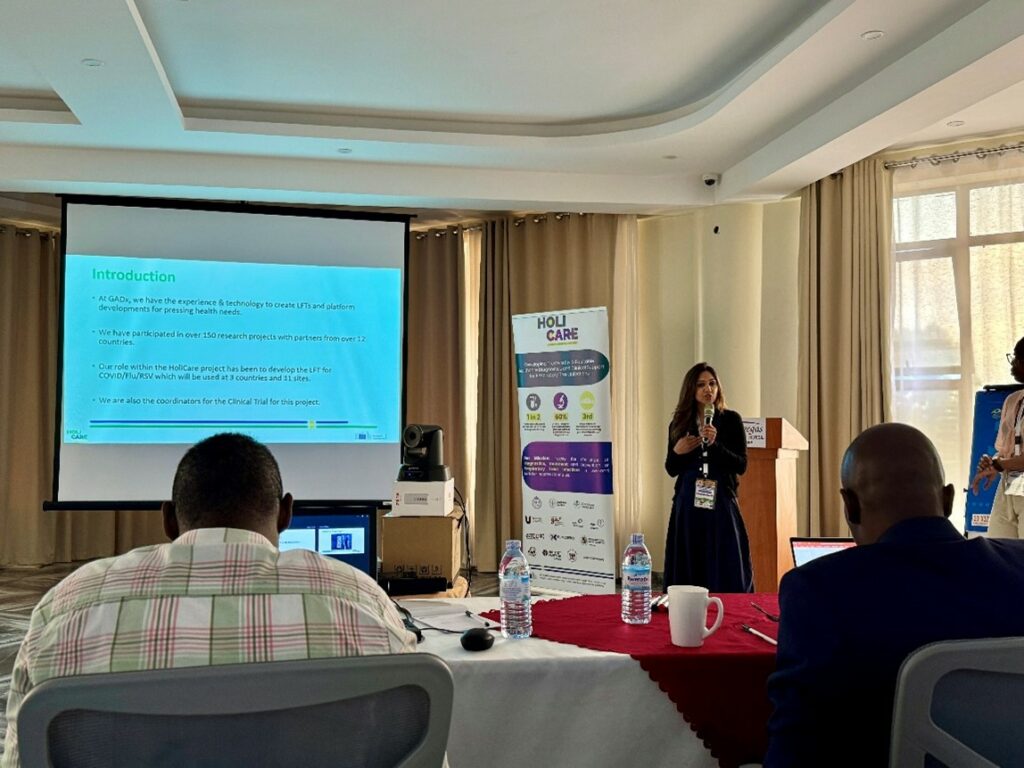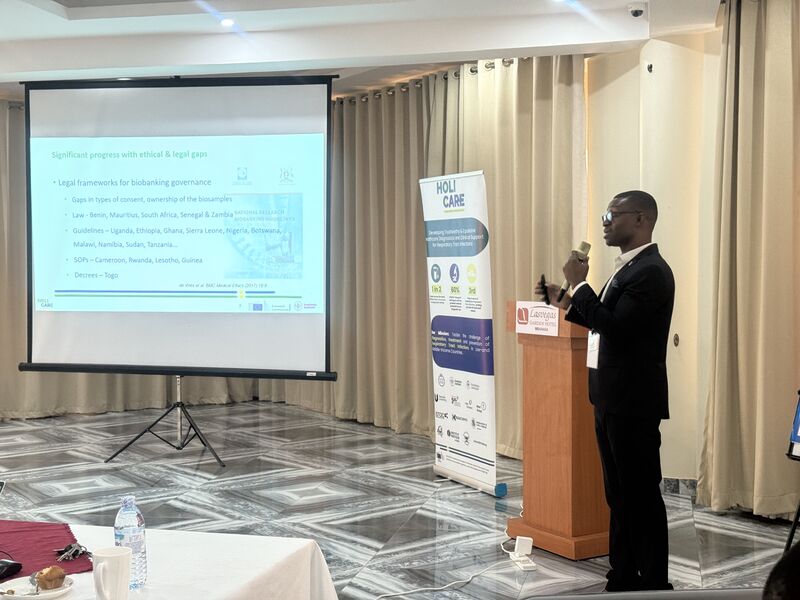HOLICARE Annual Workshop and Conference 2024:
Advancing Diagnostics for Global Health
The 2024 HOLICARE Annual Conference brought together experts, researchers, and healthcare leaders to address pressing global health challenges. Hosted at Mbarara University of Science & Technology in Uganda, the event showcased cutting-edge innovations in diagnostics and platforms for knowledge-sharing. In addition, an interactive workshop, which included technical presentations, handouts and collaborative discussions, emphasized the importance of accessible and scalable healthcare technologies for underserved populations.
Interactive Workshop:
Bridging Innovation and Application
A cornerstone of HOLICARE’s mission, the HOLICARE Academy focuses on empowering students and professionals through targeted training on diagnostic technologies.
Building on the success of the 2023 Annual Conference and workshops held in Ethiopia by AHRI, this year’s conference attracted participants that included students, research scientists, government representatives and actors from private sector and civil societies. Many of the participants were from Sub-Saharan Africa countries and the rest from Europe, UK and America. The HOLICARE hands-on and theory sessions had 34 participants, of whom 7 were trainers. The workshop demonstrated transformative technologies designed to meet the needs of resource-limited settings. The HOLICARE consortium proudly received an award from Mbarara University of Science and Technology for its novel contributions to the development of diagnostics technology, and research.
● Loop-Mediated Isothermal Amplification (LAMP) Testing
Led by experts from Mast Diagnostica GmbH (Dr. Mohammed Bakheit, Dr. Emelie Landmann and Dr. Friederike Hans), this session highlighted the LAMP technique, a rapid and affordable diagnostic tool for detecting pathogens. LAMP technology offers key advantages for resource-constrained laboratories, including DNA or RNA amplification at a constant temperature and simple detection methods. Dr. Mohammed Bakheit from Mast also highlighted its potential to enhance early disease detection and epidemic management. This accessible diagnostic method could play a pivotal role in strengthening healthcare systems and combating neglected diseases in low-income regions.
● Microfluidics: Precision in Diagnostics
Professor Aman Russom from the Royal Institute of Technology (KTH) presented microfluidics, an advanced method enabling diagnostics from small sample volumes. His KTH counterpart Dr. Ahmad Saleem Akhtar gave lab demonstrations on the concept of Lab-on a chip. The two experts explained how this technology supports the HOLICARE project by facilitating highly precise, rapid tests. Microfluidics plays a critical role in bringing diagnostics closer to those in need, expanding healthcare access with unprecedented efficiency.
Pr. Aman Russom on the benefit of Microfluidics to drive innovation in Point of care Diagnostics
● Understanding Lateral Flow Tests (LFT)
Experts from Global Access Diagnostics (GADx), Devanshi Pandit and Josephine Mensah-Kane, introduced participants to Lateral Flow Tests (LFTs), emphasizing their role in bridging healthcare gaps. These portable, easy-to-use, and cost-effective diagnostic tools are invaluable in underserved areas, requiring minimal infrastructure and training. Attendees learnt how LFTs, comparable to home pregnancy tests, empower healthcare workers to deliver quick and reliable results, enabling timely decisions which is crucial in challenging environments. GADx experts highlighted the potential of LFTs to bridge healthcare gaps by democratizing access to essential diagnostic services, ultimately contributing to more equitable health outcomes globally.
These interactive workshop sessions demonstrated HOLICARE’s commitment to equipping communities with innovative tools to combat infectious diseases effectively.
HOLICARE Annual Conference
Inspiring Keynote and Presentations:
A vision for the Future
The conference featured a keynote speaker and a dynamic series of presentations that explored the future of healthcare diagnostics. Global leaders, including contributors from the KTH, Karolinska Institute, Makerere University, Mast, GADx and Mbarara University, addressed critical topics such as integrating advanced diagnostic tools into real-world settings and fostering international collaborations to tackle public health challenges.
HOLICARE Academy Speakers
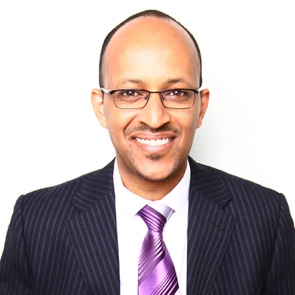
Professor
● Aman Russom ●
Pr Aman Russom received his PhD in Chemical Engineer and Biotechnology from KTH, Royal Institute of Technology, Sweden, then did his postdoc fellowship at Harvard Medical School. Now Head of the division of Nanobiotechnology at SciLifelab, at KTH Royal Institute of Technology, he is focusing on applying engineering principles and technologies, especially micro-and nanotechnology, to clinical medicine with emphasis on point of care diagnostics. He has been involved in several EU projects and is currently coordinating HOLICARE.
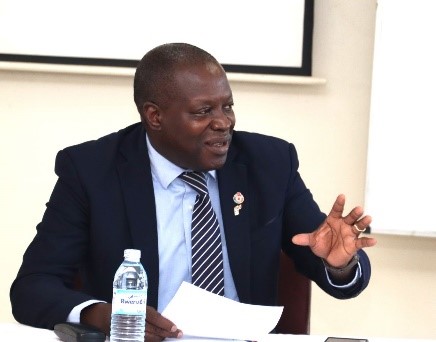
Professor
● Tonny Oyana●
Tonny Oyana earned his PhD from the University of Buffalo in Buffalo, New York, in 2003. He completed his postdoctoral studies at the University of Buffalo’s Department of Internal Medicine under Dr. Jameson Lwebuga-Mukasa. He is now the Principal of Makerere University’s College of Computing and Information Sciences in Kampala, Uganda. He is a full professor of GIS and Spatial Analysis. His study focuses on determining the relationship between environmental health and exposure, as well as the advancement of GIS methods, algorithm design, computational intelligence, analytical reasoning, and spatial analytical approaches.
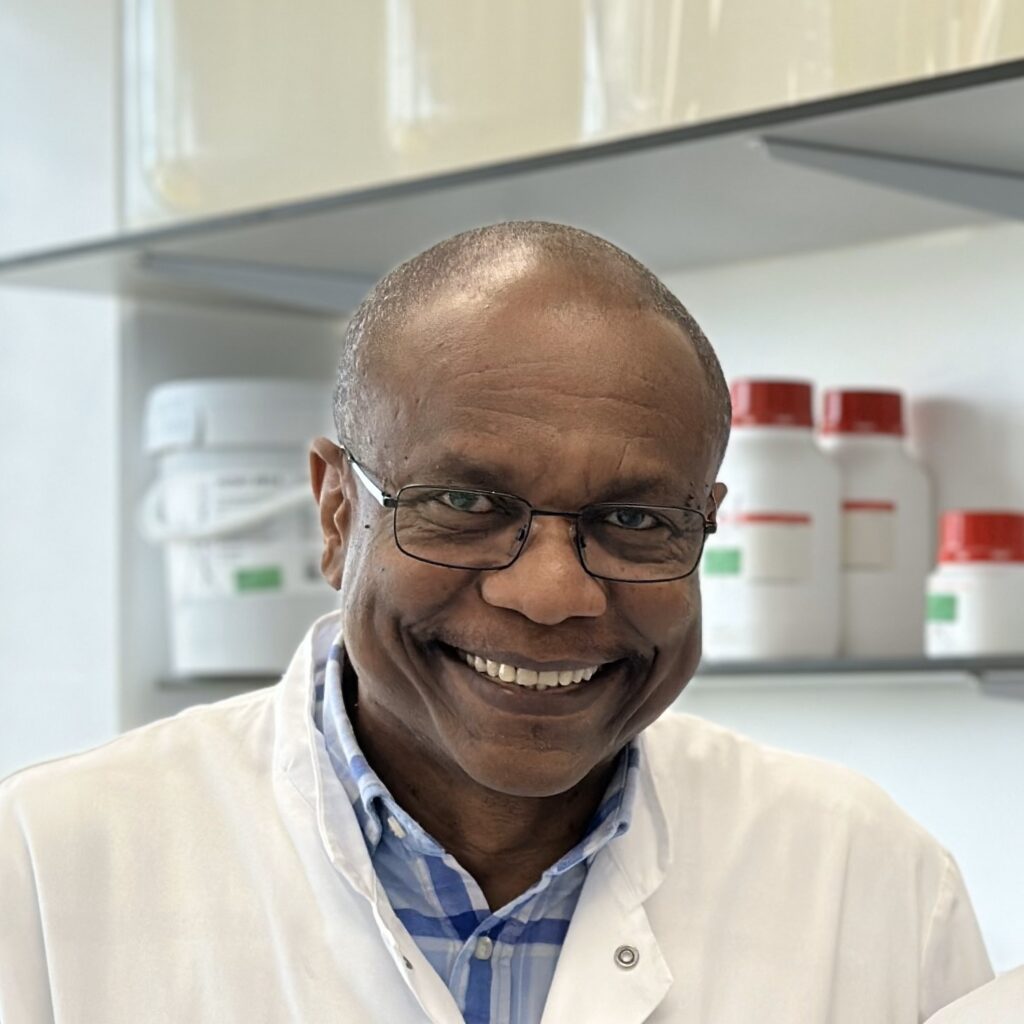
Doctor
● Mohammed Bakheit ●
Dr. Bakheit is the head of development at R&D Department Mast Diagnostica GmbH in Germany where he has worked since 2014. His education background is Veterinary Medicine. He obtained his bachelor’s and master’s degrees from Faculty of University of Khartoum, and a doctorate from the Free University of Berlin. As a postdoc, he worked in diagnostics (both serological and molecular) at the Free State University, then in the National Reference Center for Protozoan Diseases (NRCPD), Obihiro University of Agriculture and Veterinary Medicine where he focused on the diagnosis of Cryptosporidium species infection using Loop Mediated Isothermal Amplification, LAMP. Before joining MAST he participated in development of diagnostics for tick-borne protozoan diseases using LAMP at Research Center Borstel.

Data Science Manager
● Josie Mensah-Kane ●
With a background in biochemistry and a master’s in bioinformatics, Josie has spent the past five years at GADx leading data science initiatives across various projects. She specialises in applying machine learning to create predictive algorithms for diseases such as sepsis, pancreatic cancer, UTIs and more. She also specialises in statistical planning for clinical trials, including sample size calculations.

Clinical Affairs Manager
● Devanshi Pandit ●
Devanshi has a background in Biomedical Sciences and is an passionate clinical research professional with over 12 years of research experience in national & international clinical trials. She has an extensive background in healthcare, particularly highlighted by her long-standing career at the University College London Hospitals NHS Foundation Trust. At GADx, Devanshi leads and oversees the clinical trial activities across several projects ensuring seamless and efficient advancement of each project. She is also involved in early-stage discussions, set-up, and documentation development to aid the provision of the clinical studies.
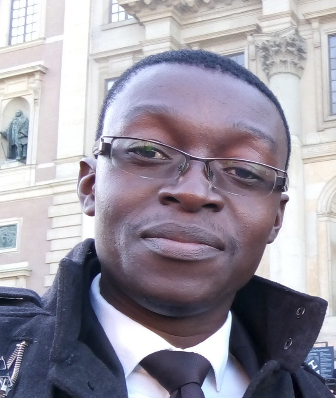
PHD student in Biomedical Sciences
● Phuthumani Mlotshwa ●
Phuthumani Mlotshwa (HBMLS, MGH, PhD cand.) is a biomedical scientist with over a decade of experience in practising and leading capacity building (SLMTA & SLIPTA) in laboratory diagnostic systems in Zimbabwe’s public, private, and NGO sectors. He holds a Master’s in Global Health and is currently a Doctoral Student at Karolinska Institutet, Sweden. In the past 5 years, his research has focused on infectious disease point-of-care diagnostics research and development in and for low-resource settings. He is an alumnus of the Swedish Institute for Global Professionals and the World Economic Forum’s Global Shapers Community.
● Clinical Trial Protocols
Devanshi Pandit and Josie Mensah-Kane from Global Access Diagnostics (GADx) provided an overview of the HOLICARE Clinical Trial, offering insights into the importance of sample size and prevalence data as well as outlining the trial design. The session explored key elements of the protocol, including recruitment strategy, sample collection and storage and a general overview of why Clinical Trials are so significant in any research project.
● TB and Pneumonia Diagnostics
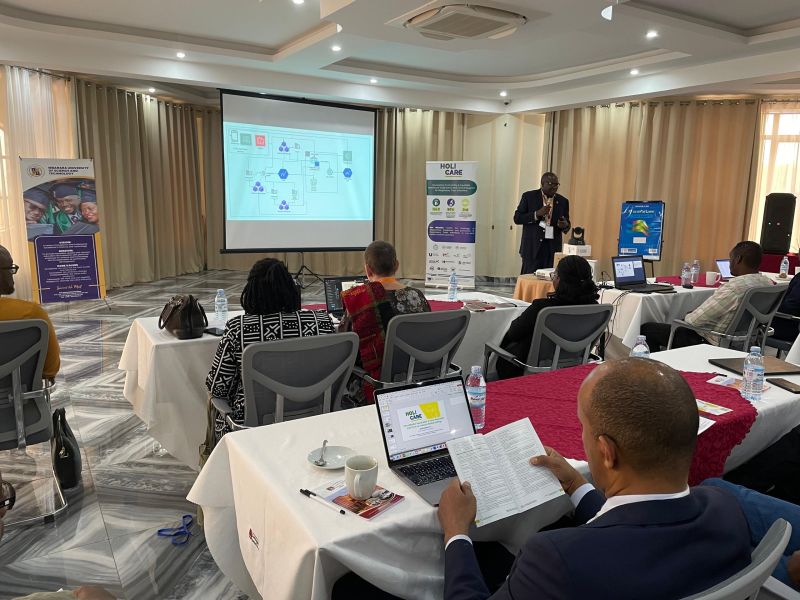
Pr. Tonny Oyana
Professor Tonny Oyana discussed the current state of tuberculosis and pneumonia diagnostics in Uganda, drawing connections between environmental health and technological advancements.
● Molecular Diagnostics
Dr. Mohammed Bakheit from Mast Diagnostica GmbH explored isothermal DNA amplification and its transformative role in efficient pathogen detection. In his session, Dr. Mohammed Bakheit delved into the principles and applications of isothermal DNA amplification, a cutting-edge technique that simplifies and accelerates the process of detecting pathogens. He highlighted how this method, which operates at a constant temperature, eliminates the need for complex thermal cycling equipment, making it especially suitable for resource-limited settings and for point of care testing.
● Nanotechnology and microfluidics in Diagnostics
Professor Aman Russom concluded with an inspiring keynote on how micro- and nanotechnology are enabling affordable, accessible diagnostics in underserved regions.
These sessions underscored HOLICARE’s commitment to innovation, equity, and sustainability in healthcare.
A Collective Vision for Global Health Transformation
The 2024 HOLICARE Annual Workshop and Conference concluded with actionable strategies to enhance diagnostic accessibility and equity. By leveraging advanced technologies, fostering global partnerships, and prioritizing underserved communities, HOLICARE continues to lead the way in creating scalable solutions for global health challenges.
This conference not only celebrated HOLICARE’s achievements but also set a visionary path for a healthier and more equitable future.

